- Home
- Deborah Smith
A Place to Call Home
A Place to Call Home Read online
“I planned to be the kind of old Southern lady who talks to her tomato plants and buys sweaters for her cats. I’d be deliberately peculiar. I’d wear bright red lipstick and tell embarrassing true stories about my family, and people would say, I heard all along she was always a little funny, if you know what I mean. They wouldn’t understand why, and I didn’t intend to tell them.”
—A PLACE TO CALL HOME
“Stylishly written, filled with Southern ease and humor.”
—Tampa Tribune
“An engrossing read with thoroughly engaging characters. The reader’s sense is that these two could only belong to one another, and no one else. I also loved the rich detail of family life, especially the uniquely Southern aspects.”
—Eileen Goudge
“Clear the decks when you read this book because you’re not going to be able to put it aside until you’ve finished the last delicious page.”
—Janet Evanovich
An Alternate Selection of The Literary Guild and
Doubleday Book Club
BY DEBORAH SMITH
from Bantam Books
WHEN VENUS FELL
A PLACE TO CALL HOME
SILK AND STONE
BLUE WILLOW
MIRACLE
FOLLOW THE SUN
THE BELOVED WOMAN
CALIFORNIA ROYALE
CAUGHT BY SURPRISE
HEART OF THE DRAGON
HOLD ON TIGHT
HONEY AND SMOKE
HOT TOUCH
JED’S SWEET REVENGE
LEGENDS
MIRACLE
NEVER LET GO
SARA’S SURPRISE
SILK AND STONE
SILVER FOX AND THE RED-HOT DOVE
STRANGER IN CAMELOT
This edition contains the complete text of the original hardcover edition.
NOT ONE WORD HAS BEEN OMITTED.
A PLACE TO CALL HOME
A Bantam Book
Grateful acknowledgment is made to StoryPeople for permission to reprint excerpts from “High Places,” in Mostly True: Collected Stories & Drawings, by Brian Andreas. Copyright © 1993 by Brian Andreas. Reprinted by permission of StoryPeople, 216 West Water Street, P.O. Box 64, Decorah, Iowa 52101.
PUBLISHING HISTORY
Bantam hardcover edition published August 1997
Bantam trade paperback edition/May 1998
All rights reserved.
Copyright © 1997 by Deborah Smith.
No part of this book may be reproduced or transmitted in any form or by any means, electronic or mechanical, including photocopying, recording, or by any information storage and retrieval system, without permission in writing from the publisher. For information address: Bantam Books.
eISBN: 978-0-307-79658-5
Bantam Books are published by Bantam Books, a division of Random House, Inc. Its trademark, consisting of the words “Bantam Books” and the portrayal of a rooster, is Registered in U.S. Patent and Trademark Office and in other countries. Marca Registrada. Bantam Books, 1540 Broadway, New York, New York 10036.
v3.1
Contents
Cover
Other Books by This Author
Title Page
Copyright
Author’s Note
Part One Prologue
Chapter 1
Chapter 2
Chapter 3
Chapter 4
Chapter 5
Chapter 6
Chapter 7
Chapter 8
Chapter 9
Chapter 10
Chapter 11
Chapter 12
Chapter 13
Chapter 14
Chapter 15
Chapter 16
Part Two Chapter 1
Chapter 2
Chapter 3
Chapter 4
Chapter 5
Chapter 6
Chapter 7
Chapter 8
Chapter 9
Chapter 10
Chapter 11
Chapter 12
Chapter 13
Chapter 14
Chapter 15
Chapter 16
Chapter 17
Chapter 18
Chapter 19
Chapter 20
Chapter 21
About the Author
AUTHOR’S NOTE
John Power arrived in America from Donegal, Ireland, in 1761, married Rachel Duvall of Greenville District, South Carolina, and together they raised a dozen children. Their adventurous youngest son, James Power, a veteran of the War of 1812, made his home in the wilderness of north Georgia after the 1826 Georgia land lottery opened the Creek Indian territory south of the Chattahoochee River, not far from a tiny pioneer settlement known as Marthasville, which later became known as Terminus, and later still, Atlanta.
James Power was a blacksmith, surveyor, judge, and ferry barge operator who hunted and traded with his Cherokee Indian neighbors across the river. He married an Irish girl, possibly a recent immigrant, whose name and fate are not known. Their only son, Samuel Wesley, was born in 1830 and served in the Confederate army during the Civil War. Four years after General William Tecumseh Sherman commandeered Powers Ferry (prior to the Battle of Atlanta) the first of Samuel Wesley’s six children, Samuel Adam, was born.
Samuel Adam Power died in 1908 when his youngest son, William, was still a baby. William married Agnes Nettie Quarles the day after Christmas in 1926. In their wedding photograph they are a handsome young couple, she in a pale, simple dress with her dark hair pulled back by a small barrette, he in a dark suit with a rosebud pinned to the lapel. He sits and she stands beside him with her arm draped gently around his shoulders. His hands, clasped around one updrawn knee, are large and strong, a workingman’s hands. He and she are smiling.
Their first daughter in a family of four daughters and four sons is Dora Power Brown, and she is my mother. She grew up playing in the river bottoms James Power farmed more than a hundred years before. When I was a child, my brother, sister, and I spent nearly every Sunday and holiday there, in the company of our grandparents, three aunts, four uncles, and fifteen first cousins.
This book is dedicated to them, for the memories and expectations, shared joys, sorrows, and strengths, and to my husband, Hank, and to my Dad. A family whose heart is as deep as its heritage.
Part One
FOR HE COMES, THE HUMAN CHILD,
TO THE WATERS AND THE WILD
WITH A FAERY, HAND IN HAND,
FROM A WORLD MORE FULL OF WEEPING
THAN HE CAN UNDERSTAND.
—W. B. YEATS
PROLOGUE
I planned to be the kind of old Southern lady who talked to her tomato plants and bought sweaters for her cats. I’d just turned thirty, but I was already sizing up where I’d been and where I was headed. So I knew that when I was old I’d be deliberately peculiar. I’d wear bright red lipstick and tell embarrassing true stories about my family, and people would say, “I heard she was always a little funny, if you know what I mean.”
They wouldn’t understand why, and I didn’t intend to tell them. I thought I’d sit in a rocking chair on the porch of some fake-antebellum nursing home for decrepit journalists, get drunk on bourbon and Coca-Cola, and cry over Roan Sullivan. I was only ten the last time I saw him, and he was fifteen, and twenty years had passed since then, but I’d never forgotten him and knew I never would.
“I’d like to believe life turned out well for Roanie,” Mama said periodically, and Daddy nodded without meeting her eyes, and they dropped the subject. They felt guilty about the part they’d played in driving Roan away, and they knew I couldn’t forgive them for it. He was one of the disappointments between them and me, which was s
aying a lot, since I’d felt like such a helpless failure when they brought me home from the hospital last spring.
My two oldest brothers, Josh and Brady, didn’t speak about Roan at all. They were away at college during most of the Roan Sullivan era in our family. But my two other brothers remembered him each time they came back from a hunting trip with a prize buck. “It can’t hold a candle to the one Roan Sullivan shot when we were kids,” Evan always said to Hop. “Nope,” Hop agreed with a mournful sigh. “That buck was a king.” Evan and Hop measured regret in terms of antlers.
As for the rest of the family—Daddy’s side, Mama’s side, merged halves of a family tree so large and complex and deeply rooted it looked like an overgrown oak to strangers—Roan Sullivan was only a fading reflection in the mirror of their biases and regrets and sympathies. How they remembered him depended on how they saw themselves and our world back then, and most of them had turned that painful memory to the wall.
But he and I were a permanent fixture in local history, as vivid and tragic as anything could be in a small Georgia community isolated in the lap of the mountains, where people hoard sad stories as carefully as their great-grandmothers’ china. My great-grandmother’s glassware and china service, by the way, were packed in a crate in Mama and Daddy’s attic. Mama had this wistful little hope that I’d use it someday, that her only girl among five children would magically and belatedly blossom into the kind of woman who set a table with china instead of plastic.
There was hope for that. But what happened to Roan Sullivan and me changed my life and changed my family. Because of him we saw ourselves as we were, made of the kindness and cruelty that bond people together by blood, marriage, and time. I tried to save him and he ended up saving me. He might have been dead for twenty years—I didn’t know then—but I knew I’d come full circle because of him: I would always wait for him to come back, too.
The hardest memories are the pieces of what might have been.
It started the year I performed as a tap-dancing leprechaun at the St. Patrick’s Day carnival and Roanie Sullivan threatened to cut my cousin Carlton’s throat with a rusty pocketknife. That was also the year the Beatles broke up and the National Guard killed four students at Kent State, and Josh, who was in Vietnam, wrote home to Brady, who was a senior at Dunderry High, Don’t even think about enlisting. There’s nothing patriotic about this shit.
But I was only five years old; my world was narrow, deep, self-satisfied, well-off, very Southern, securely bound to the land and to a huge family descended almost entirely from Irish immigrants who had settled in the Georgia mountains over one hundred and thirty years ago. As far as I was concerned, life revolved in simple circles with me at the center.
The St. Patrick’s Day carnival was nothing like it is now. There were no tents set up to dispense green beer, no artists selling handmade 24-karat-gold shamrock jewelry, no Luck of the Irish 5K Road Race, no imported musicians playing authentic Irish jigs on the town square. Now it’s a festival, one of the top tourist events in the state.
But when I was five it was just a carnival, held in the old Methodist campground arbor east of town. The Jaycees and the Dunderry Ladies’ Association sold barbecue sandwiches, green sugar cookies, and lime punch at folding tables in a corner next to the arbor’s wooden stage, the Down Mountain Boys played bluegrass music, and the beginners’ tap class from my Aunt Gloria’s School of Dance was decked out in leprechaun costumes and forced into a midyear minirecital.
Mama took snapshots of me in my involuntary servitude. I was not a born dancer. I had no rhythm, I was always out of step, and I disliked mastering anyone’s routines but my own. I stood there on the stage, staring resolutely at the camera in my green-checkered bibbed dress with its ruffled skirt and a puffy white blouse, my green socks and black patent-leather tap shoes with green bows, my hair parted in fat red braids tied with green ribbons.
I looked like an unhappy Irish Heidi.
My class, all twenty of us, stomped and shuffled through our last number, accompanied by a tune from some Irish dance record I don’t remember, which Aunt Gloria played full blast on her portable stereo connected to the Down Mountain Boys’ big amplifiers. I looked down and there he was, standing in the crowd at the lip of the stage, a tall, shabby, ten-year-old boy with greasy black hair. Roan Sullivan. Roanie. Even in a small town the levels of society are a steep staircase. My family was at the top. Roan and his daddy weren’t just at the bottom; they were in the cellar.
He watched me seriously, as if I weren’t making a fool of myself, which I was. I had already accidentally stomped on my cousin Violet’s left foot twice, and I’d elbowed my cousin Rebecca in her right arm, so they’d given me a wide berth on either side.
I forgot about my humiliating arms and feet and concentrated on Roanie Sullivan avidly, because it was the first close look I’d gotten at nasty, no-account Big Roan Sullivan’s son from Sullivan’s Hollow. We didn’t associate with Big Roan Sullivan, even though he and Roanie were our closest neighbors on Soap Falls Road. The Hollow might as well have been on the far side of China, not two miles from our farm.
“That godforsaken hole only produces one thing—trash.” That’s what Uncle Pete and Uncle Bert always said about the Hollow. And because everybody knew Roanie Sullivan was trash—came from it, looked like it, and smelled like it—they steered clear of him in the crowd. Maybe that was one reason I couldn’t take my eyes off him. We were both human islands stuck in the middle of a lonely, embarrassing sea of space.
My cousin Carlton lounged a couple of feet away, between Roanie and the Jaycees’ table. There are some relatives you just tolerate, and Carlton Maloney was in that group. He was about twelve, smug and well-fed, and he was laughing at me so hard that his eyes nearly disappeared in his face. He and my brother Hop were in the seventh grade together. Hop said he cheated on math tests. He was a weasel.
I saw him glance behind him. Once, twice. Uncle Dwayne was in charge of the Jaycees’ food table and Aunt Rhonda was talking to him about something, so he was looking at her dutifully. He’d left a couple of dollar bills beside the cardboard shoe box he was using as a cash till.
Carlton eased one hand over, snatched the money, and stuck it in his trouser pocket.
I was stunned. He’d stolen from the Jaycees. He’d stolen from his own uncle. My brothers and I had been trained to such a strict code of honor that we wouldn’t pilfer so much as a penny from the change cup on Daddy’s dresser. I admit I had a weakness for the bags of chocolate chips in the bakery section of the grocery store, and if one just happened to fall off the shelf and burst open, I’d sample a few. But nonedible property was sacred. And stealing money was unthinkable.
Uncle Dwayne looked down at the table. He frowned. He hunted among packages of sugar cookies wrapped in cellophane and tied with green ribbons. He leaned toward Carlton and said something to him. From the stage I couldn’t hear what he said—I couldn’t hear anything except the music pounding in my ears—but I saw Carlton draw back dramatically, shaking his head. Then he turned and pointed at Roanie.
I was struck tapless. I simply couldn’t move a foot. I stood there, rooted in place, and was dimly, painfully aware of people laughing at me, of my grandparents hiding their smiles behind their hands, and of Mama’s and Daddy’s bewildered stares. Daddy, who could not dance either, waved his big hands helpfully, as if I was a scared calf he could shoo into moving again.
But I wasn’t scared. I was furious.
Uncle Dwayne, his jaw thrust out, pushed his way around the table and grabbed Roanie by one arm. I saw Uncle Dwayne speak forcefully to him. I saw the blank expression on Roanie’s face turn to sullen anger. I guess it wasn’t the first time he’d been accused of something he didn’t do.
His eyes darted to Carlton. He lunged at him. They went down in a heap, with Carlton on the bottom. People scattered, yelling. The whole Leprechaun Review came to a wobbly halt. Aunt Gloria bounded to her portable record player and the music end
ed with a screech like an amplified zipper. I bolted down the stairs at that end of the stage and squirmed through the crowd of adults.
Uncle Dwayne was trying to pull Roanie off Carlton, but Roanie had one hand wound in the collar of Carlton’s sweater. He had the other at Carlton’s throat, with the point of a rusty little penknife poised beneath Carlton’s Adam’s apple. “I didn’t take no money!” Roanie yelled at him. “You damn liar!”
Daddy plowed into the action. He planted a knee in Roanie’s back and wrenched the knife out of his hand. He and Uncle Dwayne pried the boys apart, and Daddy pulled Roanie to his feet. “He has a knife,” I heard someone whisper. “That Sullivan boy’s vicious.”
“Where’s that money?” Uncle Dwayne thundered, peering down into Roanie Sullivan’s face. “Give it to me. Right now.”
“I ain’t got no money. I didn’t take no money.” He mouthed words like a hillbilly, kind of honking them out half finished. He had a crooked front tooth with jagged edges, too. It flashed like a lopsided fang.
“Oh, yeah, you did,” Carlton yelled. “I saw you! Everybody knows you steal stuff! Just like your daddy!”
“Roanie, hand over the money,” Daddy said. Daddy had a booming voice. He was fair, but he was tough. “Don’t make me go through your pockets,” he added sternly. “Come on, boy, tell the truth and give the money back.”
“I ain’t got it.”
I was plastered to the sidelines but close enough to see the misery and defensiveness in Roanie’s face. Oh, lord. He was the kind of boy who fought and cussed and put a knife to people’s throats. He caused trouble. He deserved trouble.
But he’s not a thief.
Don’t tattle on Carlton. Maloneys stick together. We’re big, that way.
But it’s not fair.
“All right, Roanie,” Daddy said, and reached for the back pocket of Roanie’s dirty jeans.
“He didn’t take it,” I said loudly. “Carlton did!” Everyone stared at me. Well, I’d gotten used to that. I met Roanie Sullivan’s wary, surprised eyes. He could burn a hole through me with those eyes.

 Legends
Legends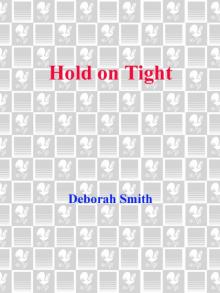 Hold on Tight
Hold on Tight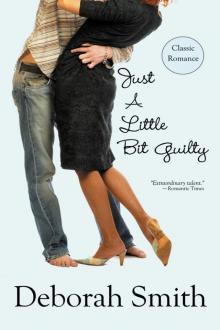 Just a Little Bit Guilty
Just a Little Bit Guilty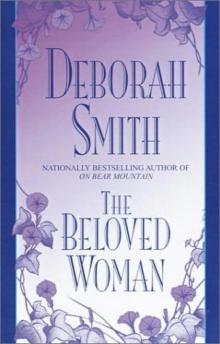 The Beloved Woman
The Beloved Woman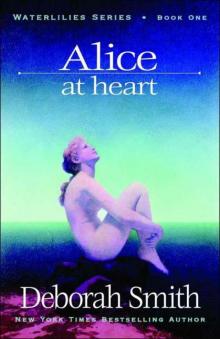 Alice At Heart
Alice At Heart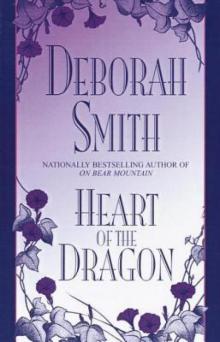 Heart of the Dragon
Heart of the Dragon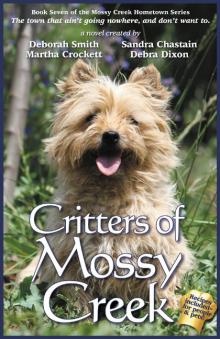 Critters of Mossy Creek
Critters of Mossy Creek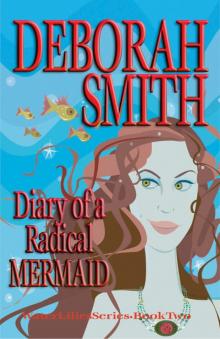 Diary of a Radical Mermaid
Diary of a Radical Mermaid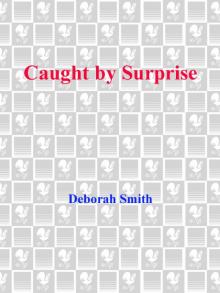 Caught by Surprise
Caught by Surprise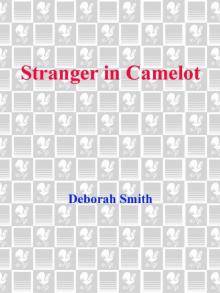 Stranger in Camelot
Stranger in Camelot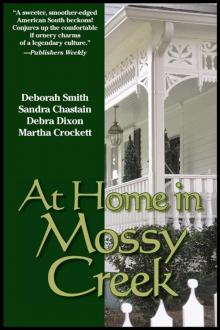 At Home in Mossy Creek
At Home in Mossy Creek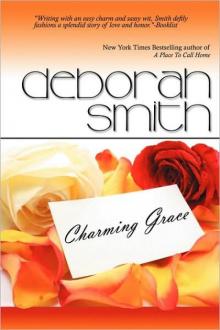 Charming Grace
Charming Grace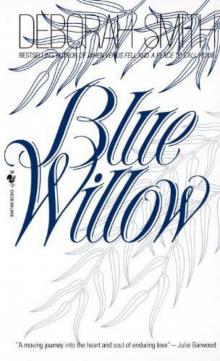 Blue Willow
Blue Willow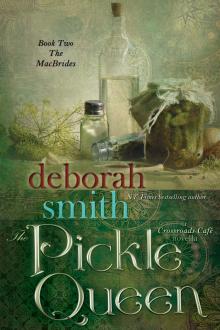 The Pickle Queen: A Crossroads Café Novella
The Pickle Queen: A Crossroads Café Novella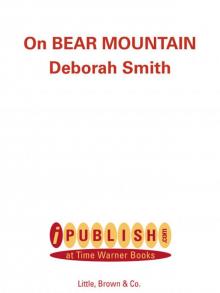 On Bear Mountain
On Bear Mountain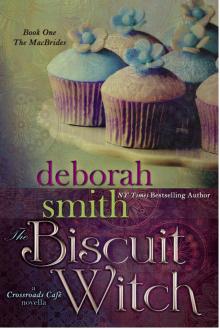 The Biscuit Witch
The Biscuit Witch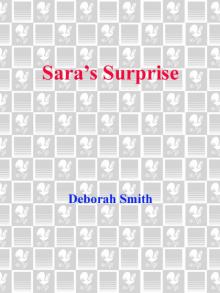 Sara's Surprise
Sara's Surprise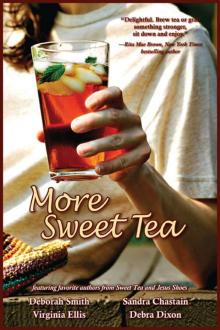 More Sweet Tea
More Sweet Tea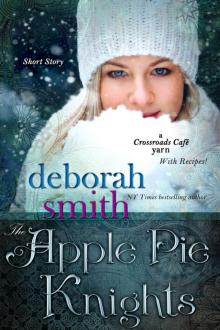 The Apple Pie Knights
The Apple Pie Knights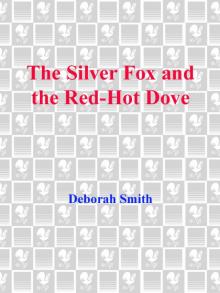 The Silver Fox and the Red-Hot Dove
The Silver Fox and the Red-Hot Dove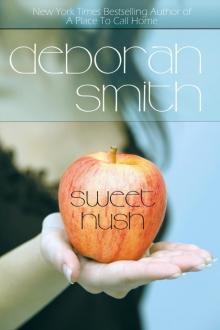 Sweet Hush
Sweet Hush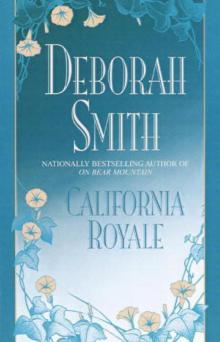 California Royale
California Royale Hot Touch
Hot Touch Miracle
Miracle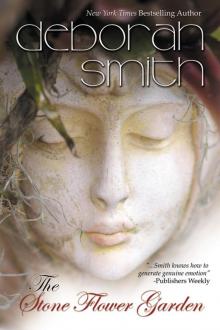 The Stone Flower Garden
The Stone Flower Garden A Place to Call Home
A Place to Call Home Silk and Stone
Silk and Stone Honey and Smoke
Honey and Smoke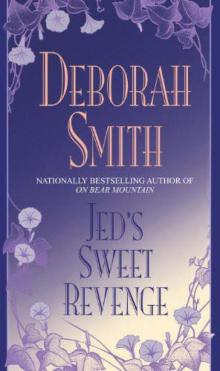 Jed's Sweet Revenge
Jed's Sweet Revenge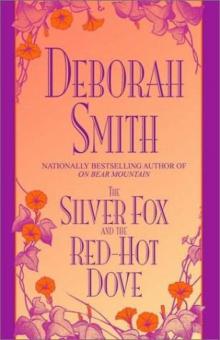 Silver Fox and Red Hot Dove
Silver Fox and Red Hot Dove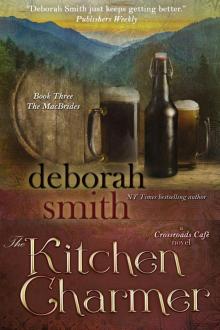 The Kitchen Charmer
The Kitchen Charmer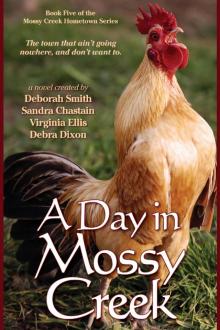 A Day in Mossy Creek
A Day in Mossy Creek Never Let Go
Never Let Go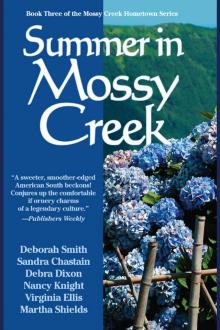 Summer in Mossy Creek
Summer in Mossy Creek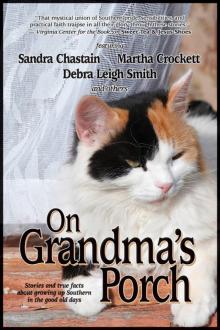 On Grandma's Porch
On Grandma's Porch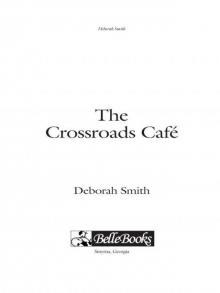 The Crossroads Cafe
The Crossroads Cafe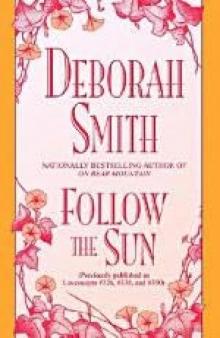 Follow the Sun
Follow the Sun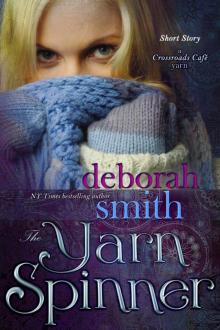 The Yarn Spinner
The Yarn Spinner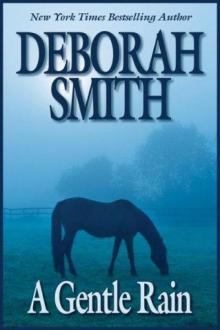 A Gentle Rain
A Gentle Rain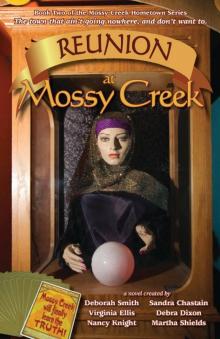 Reunion at Mossy Creek
Reunion at Mossy Creek